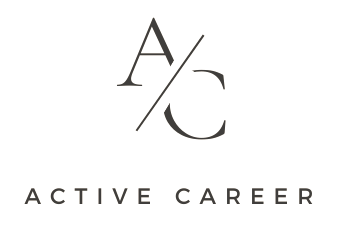In today’s competitive job market, standing out during an interview is more crucial than ever. Employers are not only looking for candidates with the right qualifications but also those who possess essential soft and hard skills that demonstrate their potential to excel in the role. Here are ten key interview skills that can set you apart and help you leave a lasting impression.
1. Effective Communication
Clear and confident communication is one of the most vital skills employers look for. Whether it’s answering questions, asking thoughtful inquiries, or engaging in small talk, your ability to convey ideas effectively can make or break the interview. Demonstrating strong verbal and non-verbal communication skills not only shows your confidence but also helps you build rapport with the interviewer.
- Tip: Practice articulating your thoughts concisely and focus on active listening during the conversation. Pay attention to your body language, maintain good posture, and make eye contact to exude professionalism.
2. Research Skills
Showcasing your knowledge about the company, its values, and its recent achievements demonstrates genuine interest and preparation. This goes beyond just reading the company’s website—delve into news articles, industry reports, and even employee reviews. Familiarity with the company’s goals and challenges allows you to tailor your responses to align with its mission and vision.
- Tip: Reference specific facts about the company to show you’ve done your homework. For example, mention a recent product launch or a corporate milestone and explain why it excites you.
3. Problem-Solving Abilities
Employers value candidates who can think critically and solve problems efficiently. Be prepared to discuss instances where you successfully addressed challenges in your previous roles. Use structured frameworks like the STAR (Situation, Task, Action, Result) method to illustrate your problem-solving approach and the positive outcomes you achieved.
- Example: Share a story about how you managed to resolve a conflict within your team, streamlined a process, or introduced an innovative solution to a recurring problem.
4. Adaptability
In a rapidly changing work environment, adaptability is a prized trait. Showcase your ability to embrace change, learn new tools, and pivot when needed. Employers want to know you can thrive in dynamic situations and contribute positively during transitions or organizational shifts.
- Pro Tip: Mention a time when you adapted to new responsibilities or technologies and achieved success. Highlight any training programs you completed or skills you acquired to stay relevant in your field.
5. Time Management
Employers want to know you can prioritize tasks and manage deadlines effectively. Share examples of how you’ve balanced multiple projects without compromising on quality. Demonstrating a proactive approach to organizing your workload assures the interviewer of your reliability and efficiency.
- Tip: Highlight specific tools or techniques you use to stay organized, such as project management software or task prioritization frameworks.
- Insight: Discuss how you set realistic goals, allocate time for high-priority tasks, and manage interruptions.
6. Emotional Intelligence (EQ)
Understanding and managing your emotions, as well as empathizing with others, can set you apart. Employers value candidates who demonstrate self-awareness and interpersonal sensitivity. Emotional intelligence is especially important in roles that require teamwork, leadership, or frequent interaction with clients.
- How to Show EQ: Share experiences of teamwork or conflict resolution that showcase your ability to navigate interpersonal dynamics. For instance, discuss how you calmed a tense situation or motivated a struggling colleague to perform better.
7. Technical Proficiency
Depending on the role, employers expect a certain level of technical expertise. Make sure you’re familiar with the tools and software commonly used in your field. Stay updated on industry trends and advancements to ensure you remain competitive.
- Tip: Discuss specific technical skills and certifications relevant to the role, and be ready to demonstrate them if needed. If asked about a tool you’re not familiar with, express a willingness to learn and provide examples of how quickly you’ve picked up new technologies in the past.
8. Storytelling
Being able to tell compelling stories about your experiences helps you connect with the interviewer on a deeper level. Use storytelling to illustrate your accomplishments and provide context for your skills. A well-told story can make your qualifications memorable and relatable.
- Example: Share a narrative about a project where you went above and beyond to achieve a remarkable outcome. Frame your story around challenges you overcame, actions you took, and the impact you made.
9. Confidence and Enthusiasm
Your demeanor during the interview speaks volumes. Confidence, paired with genuine enthusiasm for the role, shows employers that you’re excited about the opportunity. Employers are drawn to candidates who exude positive energy and believe in their ability to succeed.
- Tip: Practice positive body language, maintain eye contact, and express your interest in the position. Avoid overconfidence, but don’t hesitate to advocate for your skills and suitability for the role.
- Pro Tip: Reiterate your excitement about joining the company at the end of the interview to leave a lasting impression.
10. Follow-Up Skills
An often-overlooked skill is the ability to follow up after the interview. A well-crafted thank-you email that reiterates your interest and summarizes key points from the conversation can leave a lasting impression. This small gesture demonstrates professionalism, attention to detail, and gratitude.
- Tip: Send the follow-up email within 24 hours of the interview and personalize it to reflect your discussion. Include specific references to topics covered during the interview to show you were fully engaged.
Final Thoughts
Mastering these interview skills can give you a significant edge in your job search. Remember, preparation and practice are key. The more you refine your skills, the more confident and competent you will appear to potential employers. By combining effective communication, thorough research, and a professional demeanor, you can position yourself as the ideal candidate.
References and Further Reading
- Indeed: Interview Tips for Success
- Harvard Business Review: The Soft Skills Employers Look For
- LinkedIn: How to Stand Out in Interviews
By focusing on these ten key skills, you’ll not only increase your chances of landing the job but also leave a lasting impression that sets you apart from the competition. Preparation, self-awareness, and continuous improvement are the keys to interview success.



